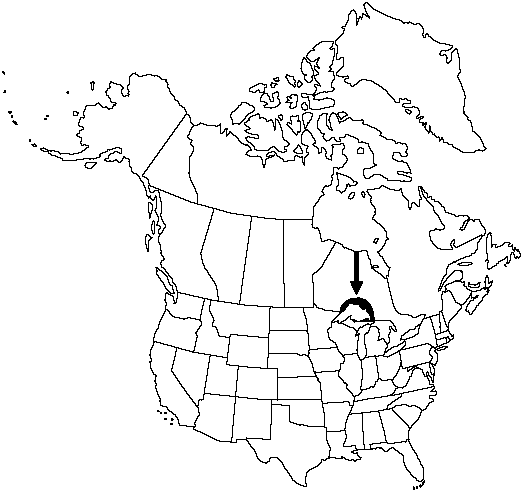Botrychium acuminatum
Contr. Univ. Michigan Herb. 17: 321. 1990.
Trophophore stalk 0–20 mm, 0.1–0.5 times length of trophophore rachis; blade dull, glaucescent, ovate-oblong, 1-pinnate, to 6 × 5 cm, firm. Pinnae to 6 pairs, spreading to ascending, mostly separated by pinna width, distance between 1st and 2d pinnae not or slightly more than between 2d and 3d pairs, basal pinna pair approximately equal in size and cutting to next adjacent pair, narrowly oblanceolate to linear-lanceolate, simple to irregularly divided to tip, margins commonly ± entire and with 1–several shallow and irregular lobes, apex acuminate, venation pinnate. Sporophores 1–2-pinnate, 1.4–2 times length of trophophore. 2n =180.
Phenology: Leaves appearing in midspring, dying in fall.
Habitat: Lake Superior region in sand dunes in shade, old fields, grassy railroad sidings, and roadside ditches
Elevation: 200–500 m
Distribution

Ont., Mich.
Discussion
Botrychium acuminatum grows with various other moonworts, particularly its nearest relatives, B. hesperium and B. matricariifolium.
Of conservation concern.
Selected References
None.